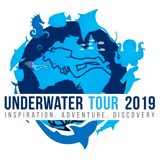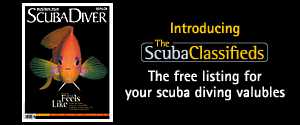
Indonesia launches Southeast Asia's biggest marine park
MANADO, Indonesia, May 14 (Reuters) - Indonesia has opened Southeast Asia's largest marine park in the Savu Sea, a migration route for almost half the world's whale species and home to vast tracts of rare coral, the country's fisheries minister said.
Environmental groups, The Nature Conservancy and WWF will help set up the reserve, where efforts will be made to stamp out illegal practices such as dynamite and cyanide fishing. Tourism activities and subsistence fishing by locals will be allowed but restricted to certain areas.
The Savu Marine National Park, launched at the World Ocean Conference in Manado, Sulawesi, will cover 3.5 million hectares (8.649 million acres) in an area of 500 species of coral, 14 species of whales and 336 species of fish living in the Savu Sea near Flores in eastern Indonesia.
"(It is) potentially one of the largest marine protected areas in the Coral Triangle," Minister of Marine Affairs and Fisheries Freddy Numberi said on Wednesday.
He was referring to the biologically diverse coral reef network bounded by Indonesia, Malaysia, the Philippines, Papua New Guinea, East Timor and the Solomon Islands.
"About 14 species out of 27 -- meaning 50 percent -- species of whales in the world migrate using this route from the Pacific Ocean, passing through the Banda Sea, Flores Sea and Savu Sea to the Indian Ocean," said Numberi.
Rili Djohani, The Nature Conservancy's marine expert, said the park will protect sea turtles, dolphins, sharks and could help boost tuna stocks by protecting their spawning grounds.
"It's a beautiful place and it's now the largest marine protected area in the Coral Triangle," she said.
"However, enforcement is one of the key questions we need to work out. It could be a combination of community-based and government patrols."
Indonesia has a rich marine environment, but the environment often faces pressure from pollution and loose law enforcement make it difficult to stop practices such as using explosives to catch fish.
The Coral Triangle also faces pressure from climate change and reefs could disappear by the end of this century unless countries slash carbon emissions from their current levels, a report commissioned by the WWF warned this week. (Additional reporting by Sunanda Creagh in Jakarta, Editing by Ed Davies and Sugita Katyal)
![]() Contributed by Tim Hochgrebe added 2009-05-16
Contributed by Tim Hochgrebe added 2009-05-16
![]() Login or become a member to join in with this discussion.
Login or become a member to join in with this discussion.

 Fantasea Australia
Fantasea Australia
Fantasea Line is an international company that has been involved in diving, water sports and photographic industries for nearly 40 years.
Articles
-
 Clean-up of the Tweed River 2008
Clean-up of the Tweed River 2008
by Simon
- The PADI Project Aware International Clean-up Day activities up at the Tweed River went well.






